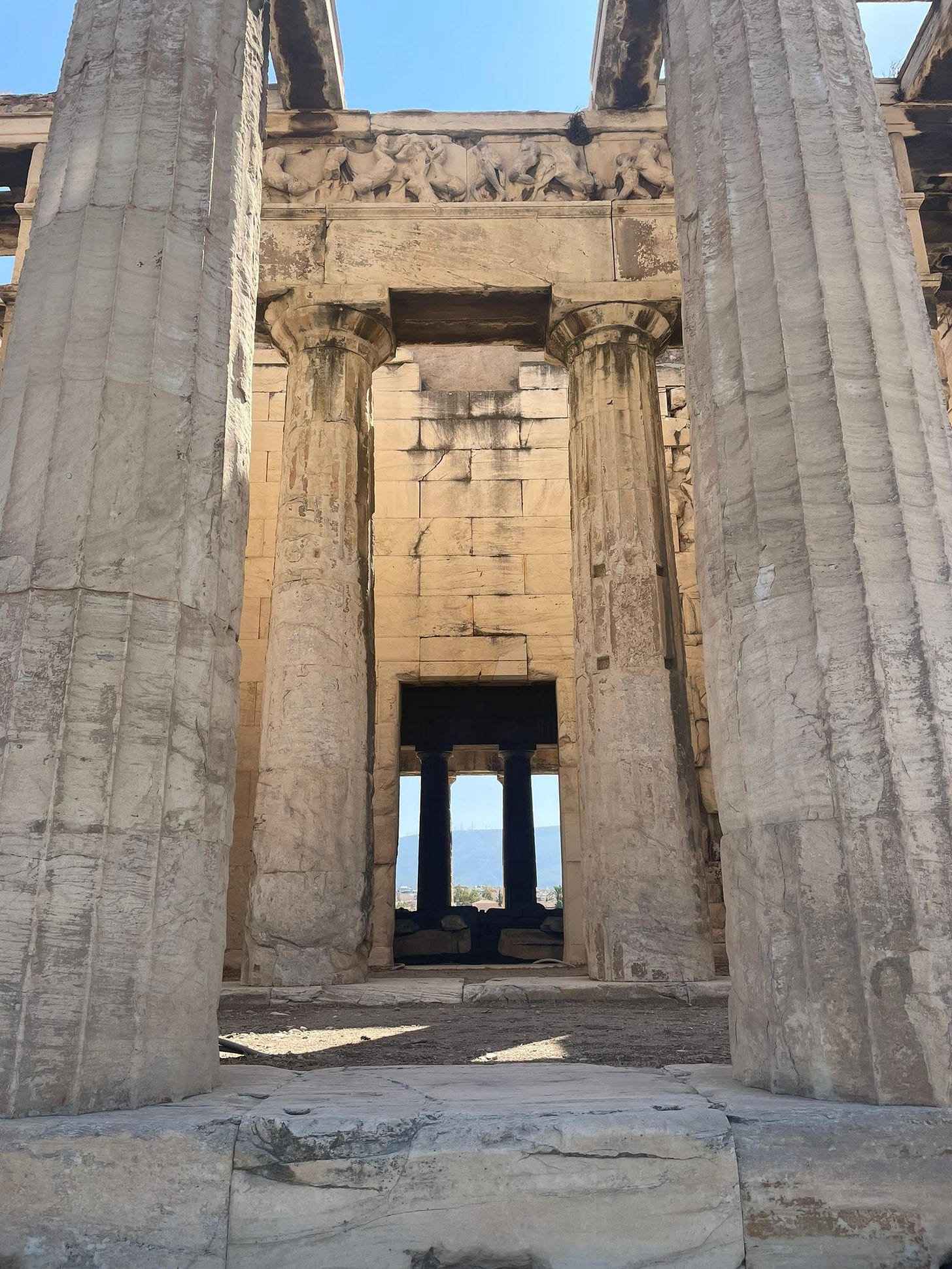My Book of the Year
Yes, I'm Calling It Early
Catch-up service:
Why Are Americans Growing Less Comfortable With Speaking Up?
Is Forgiveness a Power Move?
20 Observations On Friendship
Weird Should Not Be an Insult
I’m afraid this will be brief, as I’m on holiday, or maybe I should say annual leave, which has become the thing to write in out-of-office messages, probably because it sounds less fun. There is no vacation time written into the contract between Substack writer and Substack reader, and yet, dear subscribers, even I, Stakhanovite that I am, need occasional respite from the punishing, sweaty grind of turning out mildly contrarian takes.
I send greetings from Hydra, Greece, where I have been composing lovelorn poetry stuffing my face with battered squid while taking occasional dips in the wine-dark sea. Our holiday started with two days in Athens and a trip to the Acropolis, which fully delivered on its 2500-year-old-promise. The Parthenon stuns the eye and blows the mind and makes every subsequent moonshot seem rather short on ambition. My favourite visit, however, was just down the hill: the agora, the place where democracy (demos: the people; kratia: power) began.
Athenian democracy was an outlandish experiment that lasted longer than it had any right to. Part marketplace, part forum, the agora was where the citizens of Athens (that is, the property-owning men) gathered to debate and vote on decisions which in every other city were taken by tyrants. It was where young bucks staged debating competitions and honed their skills of persuasion. It was where Socrates confounded everyone by declaring that he wasn’t interested in winning arguments but only in truth. Most people couldn’t get their head around this; most people still can’t.
I’d always imagined, rather unimaginatively, that the agora was a square with nothing in it, but I discovered that it was populated by religious and civic buildings, the remains of which survive, some reconstructed. What struck me was how the agora blended public and private spaces; open places where a crowd could gather to hear someone speak, and cool, shady places, like the interior colonnade of the Stoa, where conspirators could gossip, plot, and strike deals.
Jay Appleton, a British geographer, argued that people look for two things in a landscape: prospect and refuge. Prospect refers to the satisfaction we get from an overview of the scene. Refuge refers to places to hide, where one can see without being seen. Markets and democracies require both. You can think about this in terms of information preference—we like there to be widely shared, accessible information, and we enjoy having information advantages over others (that’s to say, secrets).
It’s why every social media platform needs DMs. Indeed, the founder of Twitter, Jack Dorsey, said he wanted it to be the world’s agora. It turned out to be a lot less high-minded than that, but then again I bet those Athenians liked to revel in hysterical outrage and dunk on each other like crazy. Perhaps the agora, for all its elegant architecture, was the original hellsite.
So to my book of the year, which I finished on this holiday. It’s possible I’ll read a better book between now and Christmas but I’m going to go out on a limb and say that’s unlikely.




